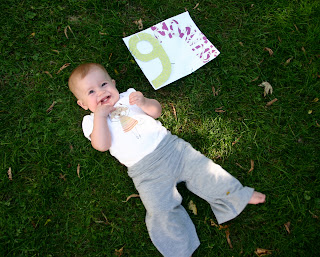I've been trying some new recipes out lately, using vegetables I don't normally use, and trying out some different kinds of flours. For those of you who don't already know, I can't eat gluten so certain recipes can be challenging and I've had some trial and error in the process. I just made both of these in the past week and I think they passed the test! Dustin even dubbed the shepherd's pie as his new favorite meal. Emery loved it too! :) I thought I'd pass them along.
Shepherd's Pie (I edited it to make more of it, so I'll include what I changed)
5-6 large potatoes, cubed (skin on or off) (I used about 16 really small ones)
2-4 tablespoons olive oil
2 clove garlic, minced
Kosher salt
Black pepper
1 (approximately) pound chunked sirloin steak (I ended up using 1.7 pounds)
1 red onion (I used a really large one)
2 cups sliced white mushrooms (I didn't add these)
2 leeks, chopped (I used 1 large one)
2 large carrots, chopped (I did 6 small ones)
2 parsnips, chopped (I chopped 3)
1/2 cup tomato puree (I did 1 cup)
1 teaspoon dried parsley
1 cup cheddar cheese (obviously, I increased the amount on the rest of these too)
3 tablespoons butter
1/2 cup milk
chives for garnish
1. Preheat oven to 375 degrees and bring a large pot of water to a rolling boil.
2. Boil cubed potatoes until soft (about 15 minutes). Set aside.
3. While potatoes are boiling, heat olive oil in a large skillet on medium-high heat. Add garlic and saute for 2 minutes. Season chunk steak with salt and pepper and add the steak to the skillet. Cook the steak until medium rare, about 10 minutes.
4. Remove the steak from the skillet and place in a 9 X 13 casserole dish. In the same hot skillet, place onion, mushrooms, and leeks and saute for 4 minutes. Then add carrot and parsnip. Cook, stirring, for 5 more minutes. Add tomato puree, parsley, salt and pepper to taste and stir to mix. Turn off the heat and let sit while you mash the potatoes.
5. Drain potatoes, mash, and add butter and milk.
6. Into your baking dish, spoon mixture from the skillet over the steak. Then, spoon mashed potatoes on top. Sprinkle cheese over the top and put in the oven for 14-16 minutes to allow the carrots to soften, the meat to cook a little more, and the cheese to melt.
7. Garnish with chives and serve hot.
My two new favorite flours to use are almond flour and coconut flour. Almond flour is a little pricey, but it's made from a super food so it's full of nutrients unlike pretty much all high carbohydrate, nutrient deficient white, wheat, rice, or potato flour! Good fats for you, lower cholesterol, smooth texture, and bakes up really nicely. Also, coconut flour is full of fiber, is super nutritious for you, won't spike your blood sugar, and tastes yummy!
So for dessert, some not-so-bad-for-you cookies! Don't let the healthy ingredients fool you, these are delicious! We brought some to our small group not long ago and they passed the test for 7, 9, and 13 year old boys!
Cranberry Walnut Chocolate Chip Cookies (Makes 36)
2 1/2 cups almond flour
1/2 t. salt
1/2 t. baking soda
1/2 cup grapeseed oil
1/2 cup agave nectar
1 T. vanilla extract
1/2 cup dried cranberries
1 cup walnuts, toasted (I used raw almonds, not toasted)
1/2 cup dark chocolate chips
1. Preheat oven to 350 degrees.
2. In a large bowl, combine almond flour, salt and baking soda
3. In a smaller bowl, combine oil, agave, and vanilla
4. Stir wet ingredients into dry
5. Mix in cranberries, walnuts and chocolate chips
6. Form dough into 1/2-inch balls and press onto parchment-lined baking sheet
7. Bake at 350 for 7-10 minutes
8. Cool and serve
YUM!! If you haven't ever baked with agave nectar I highly recommend it. A lower glycemic sweetener that doesn't make things taste "healthy."
If you have a recipe you love or have recently tried and recommend, feel free to post!!
But as for me, I would seek God, And I would place my cause before God; Who does great and unsearchable things, Wonders without number. He gives rain on the earth, And sends water on the fields. Job 5:8-10
If you said to someone: "My God does great and unsearchable things; He does wonders without number," and they responded, "Really? Like what?" would you say, "Rain"?
When I read these verses recently I felt like I did when I heard the lyrics to a Sonny and Cher song in 1969: "I'd live for you. I'd die for you. I'd even climb the mountain high for you." Even? I would die for you. I would even climb a high mountain for you? The song was good for a joke. Or a good illustration of bad poetry. Not much else.
But Job is not joking. "God does great and unsearchable things, wonders without number." He gives rain on the earth." In Job's mind, rain really is one of the great, unsearchable wonders that God does. So when I read this a few weeks ago, I resolved not to treat it as meaningless pop musical lyrics. I decided to have a conversation with myself (= meditation).
Is rain a great and unsearchable wonder wrought by God? Picture yourself as a farmer in the Near East, far from any lake or stream. A few wells keep the family and animals supplied with water. But if the crops are to grow and the family is to be fed from month to month, water has to come on the fields from another source. From where?
Well, the sky. The sky? Water will come out of the clear blue sky? Well, not exactly. Water will have to be carried in the sky from the Mediterranean Sea, over several hundred miles and then be poured out from the sky onto the fields. Carried? How much does it weigh? Well, if one inch of rain falls on one square mile of farmland during the night, that would be 27,878,400 cubic feet of water, which is 206,300,160 gallons, which is 1,650,501,280 pounds of water.
That's heavy. So how does it get up in the sky and stay up there if it's so heavy? Well, it gets up there by evaporation. Really? That's a nice word. What's it mean? It means that the water sort of stops being water for a while so it can go up and not down. I see. Then how does it get down? Well, condensation happens. What's that? The water starts becoming water again by gathering around little dust particles between .00001 and .0001 centimeters wide. That's small.
What about the salt? Salt? Yes, the Mediterranean Sea is salt water. That would kill the crops. What about the salt? Well, the salt has to be taken out. Oh. So the sky picks up a billion pounds of water from the sea and takes out the salt and then carries it for three hundred miles and then dumps it on the farm?
Well it doesn't dump it. If it dumped a billion pounds of water on the farm, the wheat would be crushed. So the sky dribbles the billion pounds water down in little drops. And they have to be big enough to fall for one mile or so without evaporating, and small enough to keep from crushing the wheat stalks.
How do all these microscopic specks of water that weigh a billion pounds get heavy enough to fall (if that's the way to ask the question)? Well, it's called coalescence. What's that? It means the specks of water start bumping into each other and join up and get bigger. And when they are big enough, they fall. Just like that? Well, not exactly, because they would just bounce off each other instead of joining up, if there were no electric field present. What? Never mind. Take my word for it.
I think, instead, I will just take Job's word for it. I still don't see why drops ever get to the ground, because if they start falling as soon as they are heavier than air, they would be too small not to evaporate on the way down, but if they wait to come down, what holds them up till they are big enough not to evaporate? Yes, I am sure there is a name for that too. But I am satisfied now that, by any name, this is a great and unsearchable thing that God has done. I think I should be thankful - lots more thankful than I am.
Grateful to God for the wonder of rain,
Pastor John















































